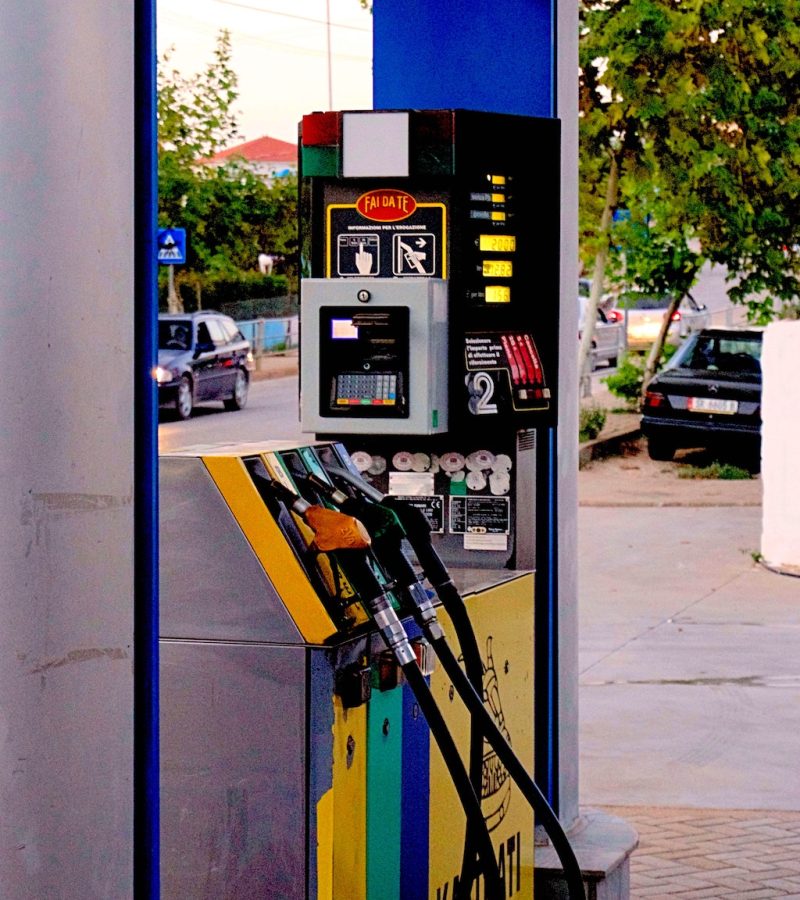Everyone’s always looking for ways to save a bit here or there, and fuel economy is one of the most effective ways to pinch pennies. Many of us fuel up multiple times a week, so those pennies tend to add up quickly.
First Step: Track your fuel intake.
Knowledge is power. Note how much fuel your vehicle is using weekly to determine which of these services or expert tips helped increase the gas milage of your specific make and model.

12 Expert Tips to Increase Gas Milage Performance
1. When to Fill Up
Refueling in the cool of the morning will ensure the fuel you’re buying is denser than gas available after the day has warmed up, as it expands and gives you less bang for the buck. (Canada actually has specific pumps that measure temperature as well as flow rate to ensure they don’t lose money on the coldest days, whereas our American pumps only measure flow rate.) Wondering how this works in your favor? Watch this super scientific video and always make sure your gas cap is fully sealed after filling up.
2. Where to fill up.
There are 3 things to consider when determining where to fill up: cost, supply and quality. COST: Use Gasbuddy or another helpful app to quickly find the least expensive gas in your area. SUPPLY: Avoid the fuel truck… tankers kick up debris on the bottom on the fuel supply tank and if those debris make it to your engine, it will hinder your MPG and decrease fuel filter life. QUALITY: Some gas stations include cleaner additives in their fuel. These additives rid of debris, carbon buildup and can increase your MPG performance. If there aren’t gas stations around you that offer this, talk to your trusted auto repair shop at your next oil change about a fuel cleaner they trust (we trust and love BG products!)
3. Filters Matter
Replace your car’s air filter and your fuel filter on schedule. Just like with your vacuum cleaner, a dirty filter makes suction difficult and worsens performance. If your air filter is clogged with dust and debris, your engine has to work twice as hard to draw air to mix with fuel. Your fuel filter is your fuel pump and engines]’s first line of defense. Replacing these filters can dramatically affect MPG performance, average increases of 14%-17%! (We also recommend changing your car’s air filter at the same time, if it has one.)
4. SIMPLE MAINTENANCE SERVICES.
Having regularly scheduled tune-ups and proper oil changes (using the manufacturer specified oil) allows your vehicle to run at it’s best performance, burning less fuel to go the same distance. These low cost services can actually save you more than you spend to have them performed. If you don’t know when your vehicle requires its next tuneup, or what type of oil it needs, check your owners manual or give our experts a call. We can have you in and out of our shop quickly.
5. Fuel matters.
Use your vehicle’s recommended fuel to get the most out of your pit stops. Your vehicle was designed a certain way and following its specific recommendations can greatly increase not only fuel economy, but also prolong the life of your vehicle. Watch this quick video to learn the science behind types of fuel. If you aren’t sure what your manufacturer recommends, as k our experts at your next appointment and our mechanics will let you know.
6. KEEP IT CLEAN.
Speaking of fuel cleaners, another quick maintenance service that can have a dramatic effect on gas milage is having your fuel injectors cleaned. Cleaning the debris and carbon build up can drastically increase your MPG performance. Our shop offers this service, but only for vehicles who will benefits from this significantly.

7. Lessen the Load.
By reducing the weight in your vehicle, you lighten how much weight your fuel has to propel forward. Now, we know your spare tire weighs a bit, but we wouldn’t recommend driving without that. Take a look inside your trunk and make sure to remove what you don’t need to lug around. Do you have a luggage carrier? Reduce the drag and remove them when not in use.
8. INFLATION.
Making sure your tires are inflated to their correct pressure can greatly affect how much fuel your vehicle will use. If your tires are dragging your vehicle, you can be sure you’ll use much more gas to get where you’re going. Additionally, choosing the right tires when it’s time to replace old ones can have an extreme impact on MPG performance during those new tires lifespan, on average that means the next 50,000-70,000 miles. Choose lightweight, super durable tires to get the best bang for your buck. Alloy wheels can be a joy, but check with our tire experts who will provide all your vehicle’s options and prices.
9. Keep Cool.
Be smart when choosing air conditioning vs rolling down windows. While it’s true using your vehicle’s AC can lower fuel economy, it truly depends when you’re choosing to turn it on. A general rule: if you’re going less than 60MPH, roll down the windows. If you’re moving at a constant speed over 60 MPH, roll up those windows and enjoy the AC. By reducing drag at higher speeds, you increase fuel efficiency.
10. Avoid Idling.
While its recommended to allow your vehicle a moment or two to warm its engine before starting your trip, allowing it to continue running in idle will burn roughly 10.67 to 21.33 ounces of fuel every 10 minutes.
11. JUST CRUISE.
Take advantage cruise control. Monkey see, monkey do is part of human nature and we have a tendency to try to keep up with surrounding traffic. This accelerating and decelerating can have an impact on gas mileage. Also, increasing your follow distance for cars ahead of you will allow you to make smoother adjustments to speed, which will help eliminate erratic starts and stops that can hinder fuel performance.
12. PARK IT.
Park in the shade. Minimize fuel evaporation and keep your vehicle cooler with nature’s own air conditioning.
Our experts here at Global Automotive can help you determine the most fuel-efficient services, products and tips that can save you money with every fill up for your make and model.